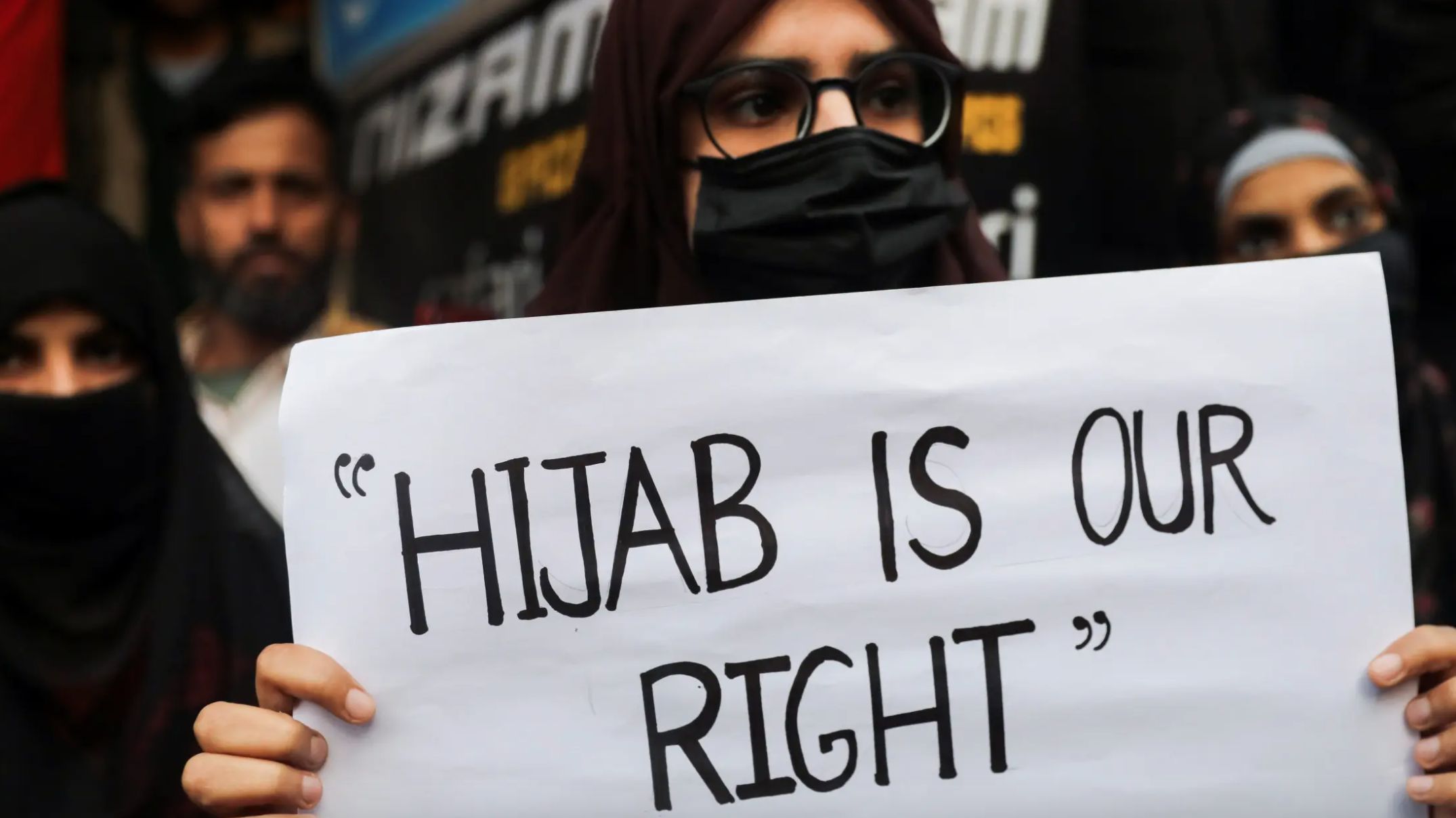SC to set up 3-judge bench to hear plea challenging Karnataka Hijab ban

With exams scheduled in February, the petitioners contended that students may be permitted to appear in the exams wearing hijab.
NEW DELHI — The Supreme Court on Monday agreed to examine a plea to constitute a three-judge bench to consider petitions challenging the ban on hijab in classrooms of pre-university colleges in Karnataka.
Senior advocate Meenakshi Arora, representing some petitioners, mentioned the matter before a bench headed by Chief Justice D.Y. Chandrachud.
She said the matter is urgent in view of the impending examination scheduled in February and added that students have moved to private colleges after the split verdict. Arora further contended that the examinations can only be conducted in government colleges, therefore students may be permitted to appear in the exams wearing hijab.
The bench comprising Justices V. Ramasubramanian and J.B. Pardiwala also asked the counsel to mention it before the registrar.
The counsel submitted that the matter may be taken up for interim order.
The bench said, “This is a three-judge matter. We will do it.”
The Supreme Court, in October last year, gave a split verdict on petitions challenging the validity of the ban on hijab worn by some Muslim girl students in classrooms of pre-university colleges in Karnataka. The split verdict was delivered by a bench comprising Justices Hemant Gupta and Sudhanshu Dhulia.
Justice Gupta upheld the Karnataka government circular and dismissed the appeals against the Karnataka High Court judgment. However, Justice Dhulia quashed the Karnataka government’s decision to ban the wearing of hijab inside classrooms of pre-university colleges, saying that the Constitution is also a document of trust and it is the trust the minorities have reposed upon the majority.
Justice Dhulia, in his judgment, said: “We live in a democracy and under the rule of law, and the laws which govern us must pass muster the Constitution of India. Amongst many facets of our Constitution, one is Trust. Our Constitution is also a document of Trust. It is the trust the minorities have reposed upon the majority.”
The bench had said since there is a divergence of views, the matter would be posted before the Chief Justice of India for setting up a larger bench. — [IANS]
